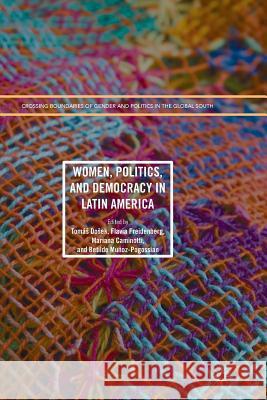Women, Politics, and Democracy in Latin America » książka
topmenu
Women, Politics, and Democracy in Latin America
ISBN-13: 9781349957033 / Angielski / Miękka / 2018 / 243 str.
Kategorie BISAC:
Wydawca:
Palgrave MacMillan
Seria wydawnicza:
Język:
Angielski
ISBN-13:
9781349957033
Rok wydania:
2018
Wydanie:
Softcover Repri
Ilość stron:
243
Waga:
0.37 kg
Wymiary:
23.39 x 15.6 x 1.4
Oprawa:
Miękka
Wolumenów:
01
Dodatkowe informacje:
Wydanie ilustrowane











